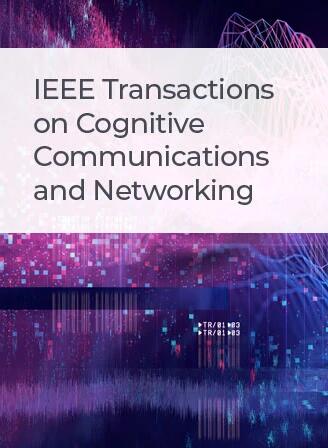Adaptive Network Function Chain Orchestration Strategy for 6G Inclusive Intelligent Services
IF 7
1区 计算机科学
Q1 TELECOMMUNICATIONS
IEEE Transactions on Cognitive Communications and Networking
Pub Date : 2025-01-21
DOI:10.1109/TCCN.2025.3532304
引用次数: 0
Abstract
In the upcoming 6G era, inclusive intelligent services(IISs) that rely on integrated communications and AI arithmetic will become the norm. These services require efficient distributed intelligent learning or reasoning. However, with the proliferation of complex applications, providing differentiated and customized services through effective network function chain (NFC) orchestration has become a significant challenge. In this paper, an adaptive NFC orchestration strategy (ANFCOS) is proposed for 6G IIS to minimize costs. In particular, a tailored NFC orchestration is optimized, catering to diverse quality-of-service requirements. ANFCOS models this process as a Markov decision process and a multiactor-attention-critic (MAAC) reinforcement learning method for solving. The strategy enables the deployment and optimization of operational costs of multiple parallel NFCs, relying on a dynamic mechanism of shifting attention. Additionally, We introduced a reinforcement learning framework based on maximum entropy to enhance the MAAC for solving and demonstrate its convergence. The simulation results show that ANFCOS significantly improves the network performance of 6G intelligent services. Compared with MADDPG, DDPG and MCTS, the cost of orchestration was reduced by 8.2%, 22.1% and 28.6%; the total delay of orchestration was reduced by 7.7%, 12.7% and 10.8%面向 6G 包容性智能服务的自适应网络功能链协调战略
在即将到来的6G时代,依靠集成通信和人工智能算法的包容性智能服务(IISs)将成为常态。这些服务需要高效的分布式智能学习或推理。然而,随着复杂应用的激增,通过有效的网络功能链(NFC)编排来提供差异化和定制化的服务已成为一个重大挑战。本文提出了一种用于6G IIS的自适应NFC编排策略(ANFCOS),以最大限度地降低成本。特别是,定制的NFC业务流程进行了优化,以满足不同的服务质量要求。ANFCOS将这一过程建模为马尔可夫决策过程,并采用多因素注意批评(MAAC)强化学习方法求解。该策略依靠注意力转移的动态机制,实现了多个并行nfc的部署和运营成本优化。此外,我们引入了一个基于最大熵的强化学习框架来增强MAAC的求解能力并证明其收敛性。仿真结果表明,ANFCOS显著提高了6G智能业务的网络性能。与MADDPG、DDPG和MCTS相比,编排成本分别降低了8.2%、22.1%和28.6%;编排的总延迟分别减少了7.7%、12.7%和10.8%
本文章由计算机程序翻译,如有差异,请以英文原文为准。
求助全文
约1分钟内获得全文
求助全文
来源期刊

IEEE Transactions on Cognitive Communications and Networking
Computer Science-Artificial Intelligence
CiteScore
15.50
自引率
7.00%
发文量
108
期刊介绍:
The IEEE Transactions on Cognitive Communications and Networking (TCCN) aims to publish high-quality manuscripts that push the boundaries of cognitive communications and networking research. Cognitive, in this context, refers to the application of perception, learning, reasoning, memory, and adaptive approaches in communication system design. The transactions welcome submissions that explore various aspects of cognitive communications and networks, focusing on innovative and holistic approaches to complex system design. Key topics covered include architecture, protocols, cross-layer design, and cognition cycle design for cognitive networks. Additionally, research on machine learning, artificial intelligence, end-to-end and distributed intelligence, software-defined networking, cognitive radios, spectrum sharing, and security and privacy issues in cognitive networks are of interest. The publication also encourages papers addressing novel services and applications enabled by these cognitive concepts.
 求助内容:
求助内容: 应助结果提醒方式:
应助结果提醒方式:


